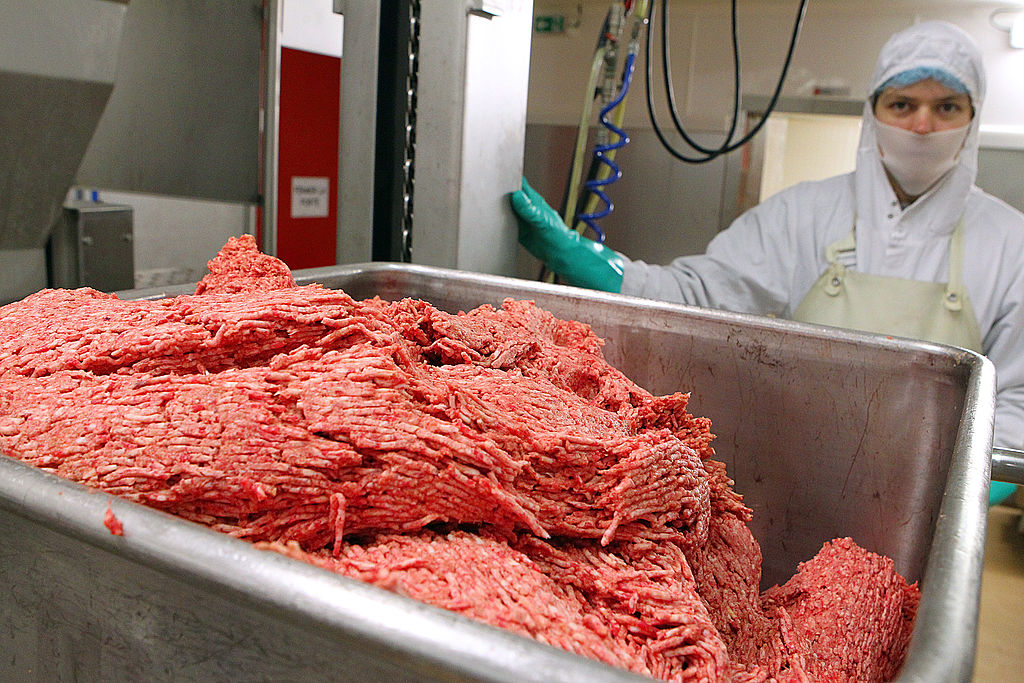It may not feel like it when the worst stomach flu of your life has you in its grip, but often, the best thing to do when you have E. coli is to rest and keep drinking beverages with electrolytes.
At least 26 people in Colorado and 49 others nationwide got sick from E. coli in an outbreak linked to McDonald’s Quarter Pounder hamburgers between late September and mid-October.
Twenty-two people needed hospital care, one child had non-fatal kidney damage and one older adult who lived in Mesa County died from complications of the infection.
Public health officials said the number of cases may rise as more people connect their symptoms to a fast-food meal. Most people get sick three or four days after eating contaminated food, but the infection can take anywhere from eight hours to 10 days to become apparent.
Here are answers to common questions about E. coli:
What is E. coli?
The term refers to a family of bacteria that typically live in the intestines of humans and other animals.
Some strains are harmless or possibly beneficial, but the strain in this particular outbreak produces a toxin that can eat through the lining of the gut, causing bloody diarrhea, or, in rare cases, bloodstream infections, said Dr. Daniel Pastula, a professor of neurology, infectious disease and epidemiology at the University of Colorado School of Medicine.
The strains that are harmful to humans cause abdominal pain, vomiting and diarrhea. If the bacteria reach the bloodstream, they can cause blood clots that damage the kidneys.
Children under 5, adults over 65 and people with compromised immune systems are at higher risk of complications.
How do people get E. coli?
The most common causes are undercooked beef or raw milk, though people also can sick from eating produce contaminated at the farm, Pastula said.
Cross-contamination in the kitchen, such as handling ground beef and then slicing raw vegetables without thoroughly washing your hands, also can result in an infection.
What should I do if I get sick with E. coli?
Your first priority is staying hydrated, even if drinking water and electrolyte beverages is the last thing you feel like doing while sick to your stomach. If you’re showing signs of dehydration, such as urinating less frequently, dizziness, or confusion, call your health care provider or go to an emergency room.
The Colorado Department of Public Health and Environment asked that people with symptoms consistent with E. coli who recently ate at McDonald’s call their local health departments, so they can keep track of where the illness is popping up.
If you live with other people, you can take precautions to avoid passing the infection to them. Don’t cook for anyone other than yourself (not that you’re likely to want to host while sick), and be sure to wash your hands thoroughly after using the bathroom. The bacteria can spread when a sick person touches surfaces with contaminated hands.
For people who have severe cases, antibiotic treatment may make sense, but it can cause more problems for those who aren’t as ill, Pastula said. Antibiotics also kill off beneficial bacteria, and killing large amounts of E. coli at once can lead to a dangerous release of toxins, he said.
“It’s not as simple as you have bacteria in your gut, I’m going to give you an antibiotic, you’ll be fine,” he said.
How can I prevent E. coli infection?
While you can’t control contamination in restaurants or on farms, safe food handling in your kitchen will reduce your risk of getting sick:
- Wash your hands thoroughly after handling raw foods, and keep them separate from cooked foods
- Clean your kitchen surfaces and utensils, particularly after handling riskier foods
- Cook cuts of beef, pork and lamb to an internal temperature of 145 degrees, and ground meats to 160 degrees
- Refrigerate foods promptly to limit bacterial growth
- Choose pasteurized milk and juices
“I think this (outbreak) shows the importance of food safety practices,” Pastula said. “There’s always going to be potential bacteria and viruses that threaten our food supply.”
Sign up for our weekly newsletter to get health news sent straight to your inbox.


